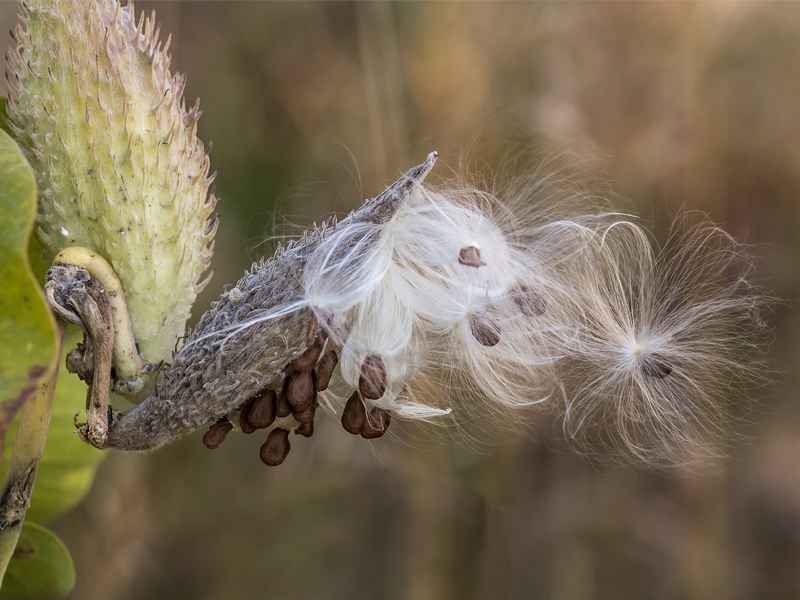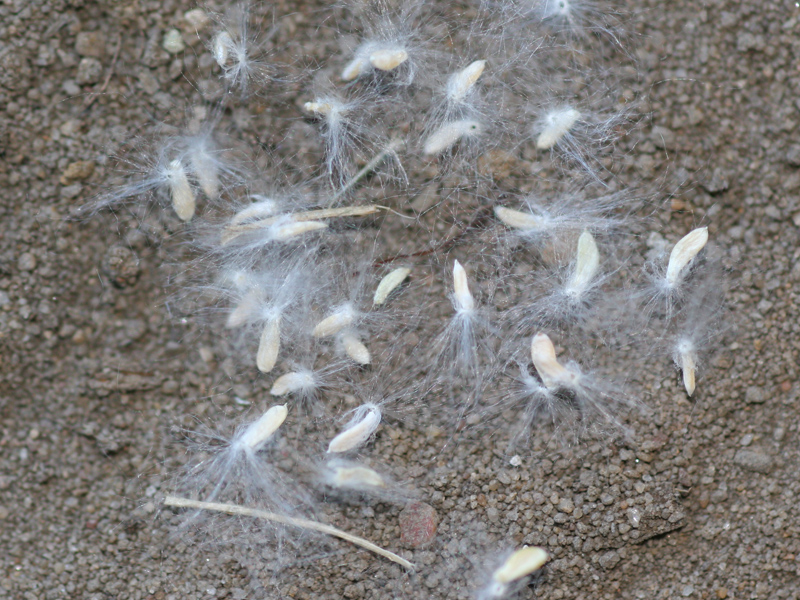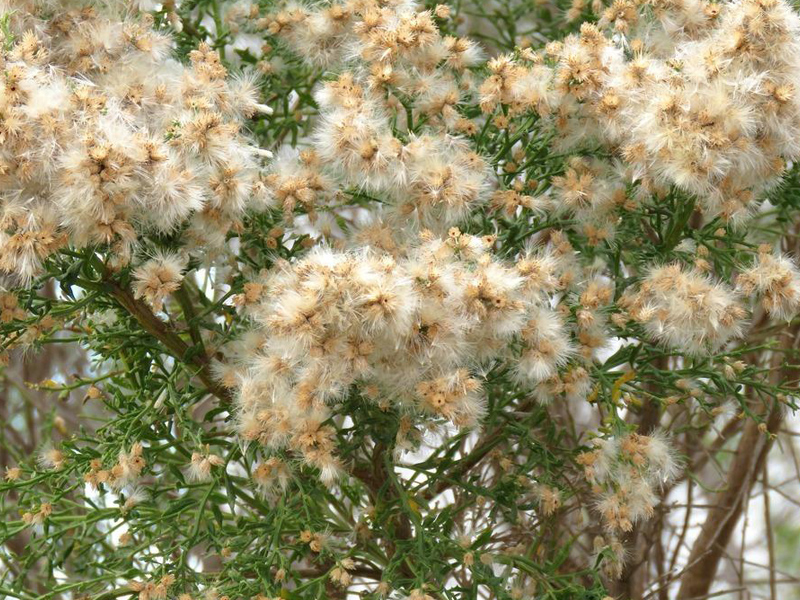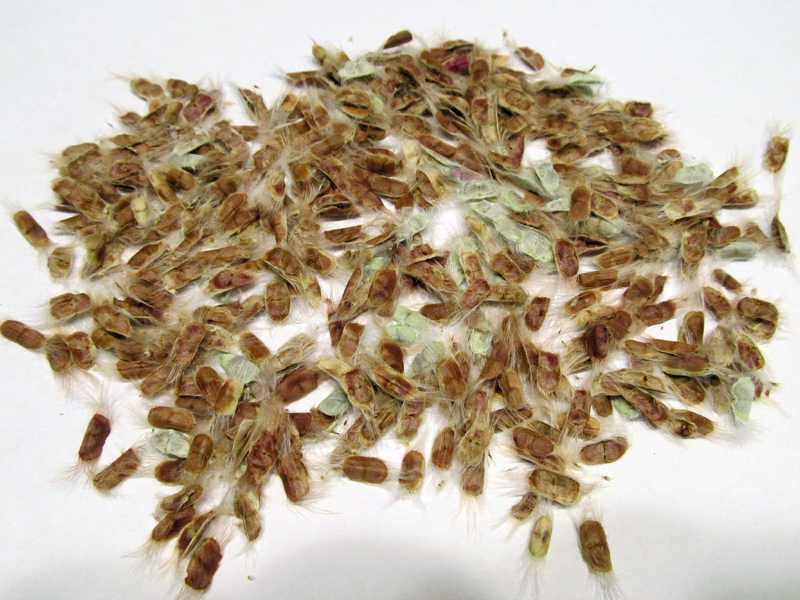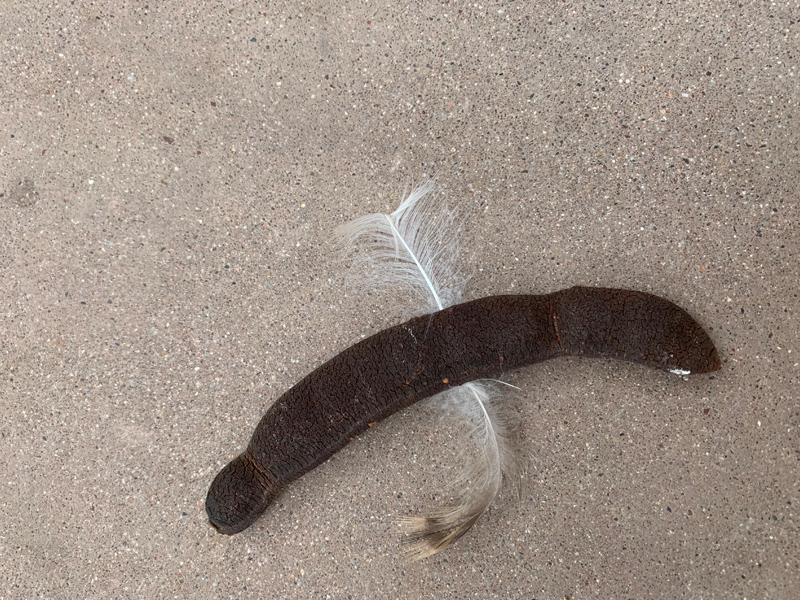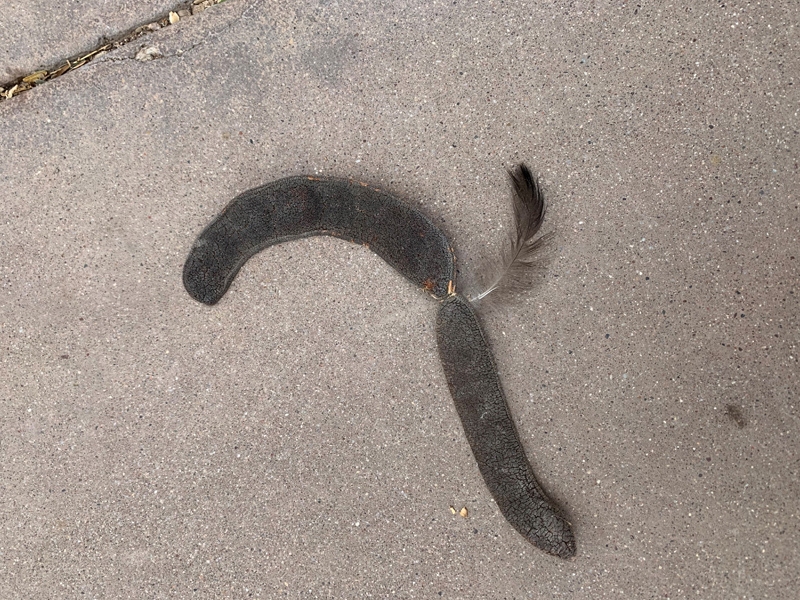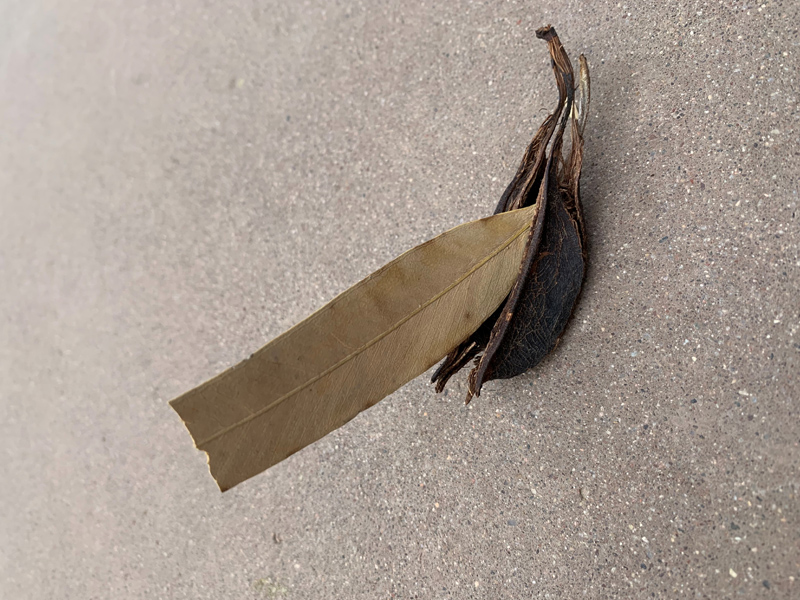Windy days are part of the seasonal experience living in the Sonoran Desert. Dust storms commonly referred to as haboobs, form when a large mass of cold, unstable air moves swiftly across dry ground covered with loose silt and fine sand. These dust storms can be about a mile high, travel 200 miles and are most intense and frequent during the summer months.
Surprisingly, many plants rely on wind for dispersing its seeds. Wind provides ‘free transportation’ for a new plant to germinate (grow) away from the parent plant. This is important since seeds that are too close to the parent plant often will not have the resources (enough water and space) to grow.
Common plants that rely on wind to reproduce include desert milkweed, desert willow, birdcage primrose, cottonwoods and desert broom to name a few. The famous “tumbleweed” often seen blowing across the road during a dust storm, relies on wind as well. Did you know that tumbleweeds are not native to Arizona? They are actually a thistle from Eurasia.
Look closely at the following seeds. You will notice that some have feathery bristles, which allows them to be carried long distances by the wind. These seeds are also light and can lift off the ground easily. Some desert plants have a round shape when they dry and can roll, allowing their seeds to fall out onto the ground as they travel across the desert.
Wind Walk
Spending time outside observing wind and learning about seed dispersal is great activity for kids of all ages.
- Head to the Garden, a park or explore your neighborhood and ask your child if they can see the wind.
- Encourage them to explain how they know it is there even though they cannot really see it.
- Ask them if they can tell you which direction the wind is blowing. Ask them if it is difficult to tell which direction the wind is blowing.
- Encourage them to look for rustling leaves, swaying trees or palm trees. During your walk, collect seeds and see which ones move with the wind and which ones do not.
- Have fun and encourage movement by running with the wind and running against the wind. Which was easier? Have them stand still and wave their bodies like the wind. Then have them twirl and whirl like the wind.
Create
Design your own imaginary seed that can travel by wind from the seeds collected. What will a seed need to have to move by wind? Wings? Lite weight? Encourage your child to be creative with their imaginary seed creation.
Extension Activity
For older children, consider the following extension to conduct a seed dispersal experiment, mimicking an exploding seedpod like a cattail. Participants will need a balloon, small birdseed, a small cup, a funnel, a sharp pencil, butcher paper (or something similar), a ruler and a sheet of paper.
- Head outside and place the butcher paper on the ground.
- Blow up the balloon (this allows the seeds to flow more easily into the balloon.)
- Use the funnel to pour in a cup of the birdseed.
- Hold the balloon with the birdseed over the center of the paper on the ground. Use the pencil to pop the balloon.
- Use the ruler to measure how far the seeds traveled from the center of the paper to all four sides and use these measurements in the diagram.
- Use the blank sheet of paper to draw a diagram of where the seeds fell and label the surroundings. Include any trees or bushes nearby and where you stood and the distance the seeds traveled from the center.
After participating in these activities come to the Garden and enjoy Wind by Natasha Lisitsa and Daniel Schultz of Waterlily Pond Studio on display through Feb. 19.
